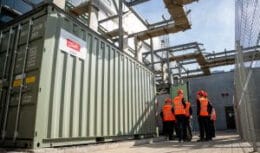
Tax benefits are included in Repetro, a customs tax regime that facilitates the importation of equipment, being an important tool to guarantee investments in the oil and gas area
In early June, the Legislative Assembly of Rio de Janeiro (Alerj) approved Bill No. 1.771/19, which ensures tax benefits for the oil and natural gas sector. The measure refers to the Tax on the Circulation of Goods and Services (ICMS) in which it declares the maintenance of the ICMS rate at 3% for import operations and internal acquisition of goods by companies in the sector in the state of Rio de Janeiro.
Tax benefits
To be entitled to tax benefits, producers and manufacturers of oil and natural gas must be properly regulated in Repetro. However, for lawyer Flávia Holanda Gaeta, from FH Advogados, “the new wording attributed to items I and II of the third clause contains errors that greatly harm its application, since it defines that the ICMS exemption would only be linked to those “manufacturers” qualified in Repetro-sped. However, final manufacturers and/or intermediaries will never be duly qualified for Repetro-sped, as there is no legal provision that includes them in the list of subjects liable to appear as beneficiaries of the referred regime”, explains Gaeta.
ICMS Agreement No. 220/2019 amended ICMS Agreement No. 03/2018, which authorized the States and the Federal District to grant a reduction in the calculation base and ICMS exemption on imports or acquisition operations in the domestic market of goods or merchandise used in oil and natural gas exploration and production activities within the scope of Repetro-Sped and Repetro-Industrialização.
- Selection process started yesterday (03/08) by the company Nord Oil and Gas in Rio de Janeiro demands candidates without experience to compose internship vacancies
- PetroRio has vacancies open for process engineer, production engineer, chemical engineer and coordinator, for on and offshore vacancies
- Attention New Graduates! HEINEKEN launched the Leadership Experiences program aimed at professionals trained in any course
The oil and gas sector could be at risk of weakening if problems are not addressed
However, from the lawyer's point of view, the ICMS Agreement 220/2019, as it was written, contains serious errors that compromise its application, causing insecurity in the sector, with possible consequences, such as weakening investments in Brazil. Something that has been alerted by Gaeta, considering that it directs the country against what is expected in times of aggravated economic crisis.
Situations like these, promote losses in the most diverse instances, “the States need to analyze what they are legislating, because the error in the elaboration of the Agreement came from the collegiate meetings within the scope of CONFAZ. Before regulating the Agreement, it is crucial that legislators and public agents evaluate the published text and take the initiative to revise it with the aim of correcting distortions, returning the matter to CONFAZ. Without an initiative by the States, taxpayers would have enormous difficulty trying to reverse the scenario”, concludes Gaeta.












